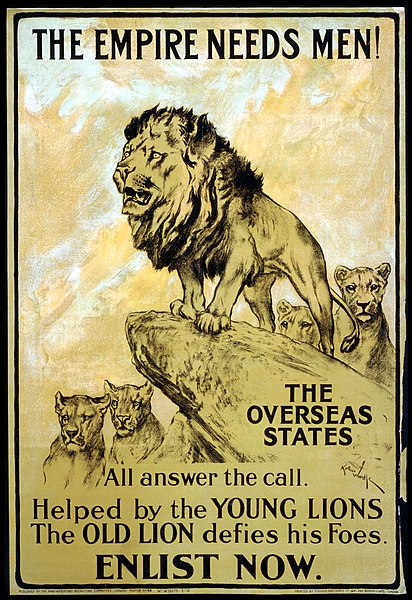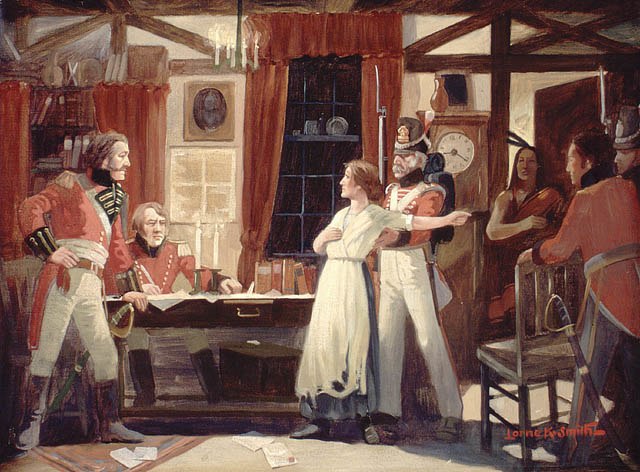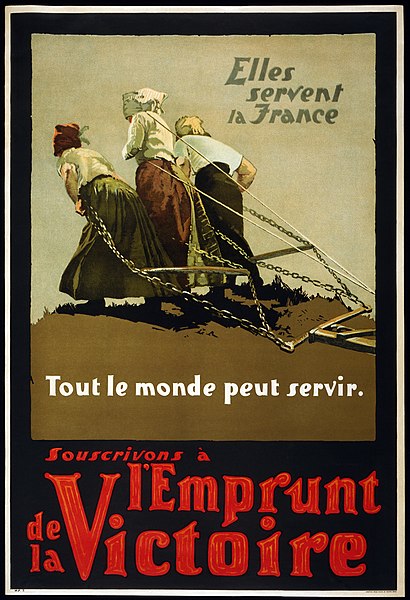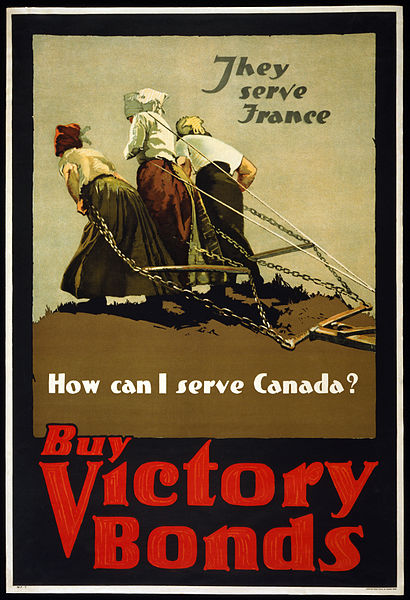The military history of Canada during World War I
began on August 4, 1914, when the United Kingdom entered the First World War (1914–1918) by declaring war on Germany. The British declaration of war automatically brought Canada into the war, because of Canada's legal status as a British Dominion which left foreign policy decisions in the hands of the British parliament. However, the Canadian government had the freedom to determine the country's level of involvement in the war. On August 4, 1914, the Governor General declared a war between Canada and Germany. The Militia was not mobilized and instead an independent Canadian Expeditionary Force was raised.
A recruitment poster used in Canada during World War I
Members of the 48th Regiment "Highlanders" depart for camp from a Toronto armoury, 1914.
The Canadian Corps field headquarters in Neuville-Vitasse, 1918.
Second Battle of Ypres by Richard Jack. The painting was the first commission completed for the Canadian Wars Memorials Fund.
Canada is a country in North America. Its ten provinces and three territories extend from the Atlantic Ocean to the Pacific Ocean and northward into the Arctic Ocean, making it the world's second-largest country by total area, with the world's longest coastline. Its border with the United States is the world's longest international land border. The country is characterized by a wide range of both meteorologic and geological regions. It is a sparsely inhabited country of 40 million people, the vast majority residing south of the 55th parallel in urban areas. Canada's capital is Ottawa and its three largest metropolitan areas are Toronto, Montreal, and Vancouver.
Benjamin West's The Death of General Wolfe (1771) dramatizes James Wolfe's death during the Battle of the Plains of Abraham at Quebec City.
War of 1812 heroine Laura Secord warning British commander James FitzGibbon of an impending American attack at Beaver Dams
French version of the poster roughly translates as "They serve France–Everyone can serve; Buy Victory Bonds".
The same poster in English, with subtle differences in text. "They serve France—How can I serve Canada? Buy Victory Bonds".








